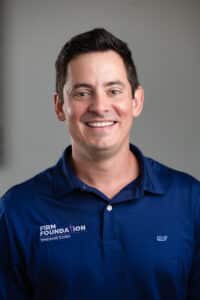If you’re struggling with addiction, you may feel trapped, ashamed, or unsure of where to turn. It’s easy to believe that recovery is out of reach—but it isn’t.
For many, learning how to overcome addiction with God offers a powerful source of strength, healing, and lasting transformation. God meets us exactly where we are, not when we’re “cleaned up” or perfect, but in our brokenness. From there, He begins to rebuild.
In this article, we’ll explore the spiritual and practical steps that can help you overcome addiction and move toward a life of freedom and purpose. You don’t have to do this alone. With faith, support, and the right tools, change is possible—and you are worth the journey.
The Role of Faith in Addiction Recovery
Faith isn’t just an idea—it’s something you hold onto when life feels like it’s falling apart. Addiction has a way of making you feel lost, ashamed, or beyond repair. Faith reminds you that your story isn’t over. That no matter how far you’ve gone, God hasn’t let go of you.
Choosing to recover with God isn’t about being perfect or having all the answers. It’s about getting honest with yourself and with Him. It’s admitting that you can’t fight this battle alone and trusting that His grace really is enough, even when you feel like you’re failing.
Addiction doesn’t just break down your health or relationships—it weighs heavily on your soul. So many people use substances to cover pain that only God can reach. Faith won’t erase the struggle, but it will give you the courage to face it—and the strength to keep going. It’s not about quick fixes. It’s about walking with the One who heals as you take one step at a time toward freedom.
How to Overcome Addiction with God – Key Steps
Learning how to overcome addiction with God isn’t about finding a quick fix—it’s about surrendering to a deeper transformation that takes time, faith, and action. Below are five key steps to help guide your journey toward healing through Christ.
Surrender Control and Seek God’s Strength
The first and hardest step is surrender—acknowledging that you can’t do this on your own. Addiction thrives on isolation and control, but recovery begins when you let go of self-reliance and lean fully on God. Make it a daily practice to seek God’s strength through prayer, scripture reading, and quiet time. Ask Him for help, not just when things get tough, but every single day. When you trust in God’s power instead of your own, you’ll begin to find peace in the process—even when it feels uncertain.
Confess, Repent, and Accept Grace
Shame is one of addiction’s strongest weapons. It convinces you that you’re too far gone, too broken, or too sinful to deserve healing, but that’s a lie. Confession isn’t about condemnation—it’s about freedom. When you repent and turn away from old patterns, you open yourself up to receive God’s grace.
Grace changes everything. It says, “You’re not defined by what you’ve done. You’re defined by who I say you are.” Recovery begins when you stop hiding and start believing that God’s mercy is big enough to cover your past—and shape your future.
Find a Faith-Based Support System
You weren’t meant to do this alone. Recovery is hard, and trying to walk through it in isolation makes it even harder. That’s why finding a faith-based support system can make all the difference.
Whether it’s a small group at church, a mentor who listens without judgment, or a Christ-centered program like Firm Foundation, being around people who share your values gives you strength. It’s not just about accountability—it’s about being reminded that you’re not the only one fighting, and that there’s hope on the other side of the struggle.
At Firm Foundation, we combine proven clinical care with real spiritual support. We walk with men through every step of recovery—physically, emotionally, and spiritually—always with compassion, honesty, and Christ at the center. You don’t have to have all the answers. You just need people who will walk with you in truth, remind you of who you are in God’s eyes, and help you keep moving forward.
Develop New Routines Rooted in Faith
Addiction thrives in chaos. That’s why recovery calls for structure—and that structure should be centered on Christ. Create new daily habits that strengthen your spirit: prayer in the morning, reading a devotional, listening to worship music, or journaling your thoughts and prayers.
Replacing harmful behaviors with spiritual disciplines gives you something life-giving to fall back on when temptation strikes.
As Romans 12:2 says, “Be transformed by the renewing of your mind.” Your routines shape your thinking, and your thinking shapes your actions. The more you fill your life with God’s Word and presence, the stronger your foundation becomes.
Trust the Process, Even When It’s Hard
There will be setbacks. There will be days when you feel discouraged, tired, or unsure if healing is really happening. That’s when faith matters most. Trust that God is working, even when you can’t see it yet.
Recovery is not a straight line—it’s a journey of learning, growing, and leaning into God’s strength day by day. Galatians 6:9 reminds us, “Let us not grow weary in doing good, for in due season we will reap, if we do not give up.” When it gets tough, don’t run. Don’t quit. Go back to God. He will meet you in the struggle—and lead you forward in love.
Where Therapy and Faith Meet
Some people believe that therapy and faith are two separate paths, but they don’t have to be. In fact, when guided by God’s truth, therapy can become a powerful tool for healing. It helps uncover the patterns that keep us stuck and gives us strategies for walking in freedom.
At Firm Foundation Treatment Center, therapy and faith work hand in hand to support long-lasting recovery. We offer a range of evidence-based therapies, all grounded in a Christ-centered approach:
- Cognitive Behavioral Therapy (CBT): Helps identify and change destructive thinking patterns that lead to addiction.
- Dialectical Behavior Therapy (DBT): Builds skills for emotional regulation, healthy relationships, and distress tolerance.
- Eye Movement Desensitization and Reprocessing (EMDR): Supports healing from trauma, especially when past wounds fuel addiction.
- Family Systems Therapy: Repairs relationships and fosters trust between men in recovery and their loved ones.
- Motivational Interviewing (MI): Encourages clients to tap into their own values and motivations for lasting change.
- Art Therapy: Offers a creative and reflective outlet for emotional expression and spiritual healing.
At Firm Foundation, these therapies are not replacements for faith—they’re extensions of it. By combining biblical truth with clinical excellence, we offer whole-person healing that restores not only the mind and body but also the spirit.
Healing Is Possible with God’s Help
Addiction doesn’t disqualify you from God’s love—it opens the door to a deeper relationship with Him. Recovery is a step-by-step journey, and learning how to overcome addiction with God means trusting Him to lead, heal, and restore what’s been broken.
You don’t have to walk that path alone. At Firm Foundation Treatment Center, we’re here to walk with you through faith, therapy, and real community. If you’re ready to take that next step or even just ask a few questions, we’re here. Reach out today. There’s hope—and it starts here.
FAQs About How to Overcome Addiction with God
Can God really help me overcome addiction?
Yes—absolutely. God’s power is greater than addiction. Many people have found true healing through faith, not because they were strong, but because they learned to rely on God’s strength instead of their own. When you seek His help and surrender your struggle, you’re inviting the One who created you to step into your pain and begin the work of restoration. Knowing how to overcome addiction with God means understanding that recovery isn’t about willpower alone—it’s about grace, guidance, and learning to walk in a new direction with Him leading the way.
Do I have to be perfect to be accepted by God?
Not at all. In fact, God specializes in meeting people exactly where they are—brokenness and all. Romans 5:8 reminds us, “While we were still sinners, Christ died for us.” You don’t need to have everything figured out before coming to God. You just need to reach. Recovery is a process, and so is faith. Perfection isn’t the goal—progress and transformation through Him are.
How do I start building a relationship with God again?
Start small. Talk to Him honestly—even if all you can say is “help.” Read scripture, even if it’s just a verse a day. Find a church or faith-based community where you can be supported and encouraged. Recovery is hard, and rebuilding your relationship with God can feel intimidating if you’ve been distant, but He’s never moved away from you. Begin with openness, and He will meet you there.
What if I relapse—does that mean I’ve failed spiritually?
Not at all. Relapse isn’t spiritual failure—it’s part of a human journey. Struggling doesn’t mean you’ve disappointed God or that He’s given up on you. In fact, His love isn’t measured by your track record. It’s steady. It’s unconditional. It’s still there, even on the days you feel like you’re starting over. God’s grace isn’t something you earn—it’s something you receive. If you relapse, don’t run and hide in shame.
Don’t tell yourself you blew it for good. Instead, pause, pray, and reach out for help. This is where growth happens—not in perfection, but in persistence. Learning how to overcome addiction with God means learning how to lean into His mercy when you fall. It means getting back up, one step at a time, and trusting that He’s walking with you, not just when you’re strong but also when you’re struggling.
How is a Christ-centered rehab program different from others?
A Christ-centered program integrates spiritual healing with clinical support. At Firm Foundation, that means therapy and treatment are rooted in biblical truth, prayer, and the belief that God plays an essential role in recovery. You’ll explore your emotional and behavioral challenges through proven methods like CBT or DB. Still, you’ll also grow in faith, develop spiritual habits, and rebuild your life with God at the center. It’s not just about staying sober—it’s about becoming whole.
What should I look for in a faith-based recovery program?
Look for a program that balances spiritual support with professional expertise. A solid Christ-centered rehab should include:
Licensed therapists and evidence-based therapies
Integration of prayer, scripture, and Christian counseling
Staff who respect your spiritual journey without judgment
A community that encourages both accountability and grace
Most importantly, look for a place where you feel seen, —not just as someone with a struggle but as someone with purpose and value. A place like Firm Foundation Treatment Center, where your recovery journey is supported by both clinical care and biblical truth, would be ideal.






